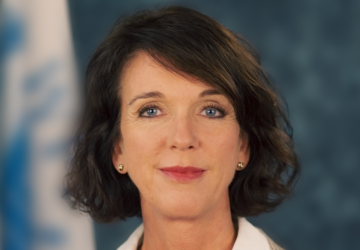Secretary-General Appoints Arnhild Spence of Norway as the United Nations Resident Coordinator in Bosnia and Herzegovina

United Nations Secretary-General António Guterres appointed Arnhild Spence of Norway as United Nations Resident Coordinator in Bosnia and Herzegovina, with the host Government’s approval. She took up her post on 1 September.
Ms. Spence brings over 30 years of professional experience across government, intergovernmental organizations, the United Nations, and civil society, with a career that spans international relations, security, diplomacy, development and humanitarian affairs. She most recently served as UN Development Coordinator* in Kosovo** since 2022. Prior to this, Ms. Spence held several leadership roles at the World Food Programme (WFP), both as Director of Partnership in HQ and in country programmes in Africa and Asia. She also held positions with the United Nations Office for the Coordination of Humanitarian Affairs (OCHA) and the United Nations Office in Geneva (UNOG).
Prior to joining the United Nations, Ms. Spence worked with the Norwegian Refugee Council (NRC) and the International Federation of Red Cross and Red Crescent Societies (IFRC). She began her career in foreign and security policy, holding positions with the Norwegian ministries of foreign affairs and defense, European Union institutions, and the North Atlantic Treaty Organization (NATO) Headquarters in Brussels. At NATO, she established a strategic partnership with the UN Secretariat and negotiated a joint NATO-Russia concept for peace-support operations.
She holds a master’s degree in international relations from the University of Oslo.
* The Development Coordinator in Kosovo leads and coordinates the United Nations Kosovo team (UNKT) to support progress towards sustainable development in Kosovo anchored around the Sustainable Development Goals. The Development Coordinator ensures effective coordination of the UNKT's work with the United Nations Mission in Kosovo (UNMIK).
**All references to Kosovo shall be understood to be in the context of Security Council Resolution 1244 (1999)

